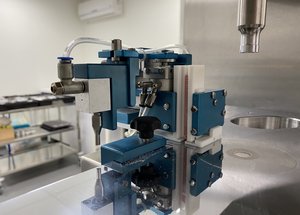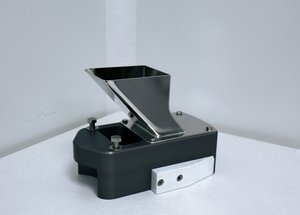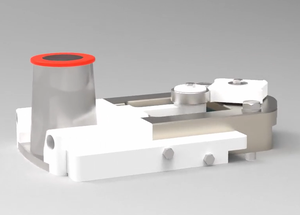Scientific papers
The primary aim of this publication was to anticipate tablet tensile strength by analyzing process data, including compression pressure, sampling timestamps, and punch positions. A recurrent neural network, specifically incorporating Long Short-Term Memory layers to address the time-series nature of the data, was employed. A dataset from 344 tablet compression cycles was utilized for model training, and the model exhibited strong predictive capabilities with a coefficient of determination of 0.954 on test data from 804 tableting cycles. The foundational database encompassed data from both pure substances and mixtures, involving up to four components compressed at varying pressures and with three different tablet masses.
Notably, prediction errors did not show significant correlations with specific materials, mixtures, maximum compression pressures, or tablet weights. The model enabled the calculation of the entire tabletability profile for twelve substances from just a single compression process each. Models of this nature hold promising potential for future applications in research and development of formulations, as well as in production processes, facilitating the prediction of tensile strength.

Comments
No comments posted yet.
Add a comment















